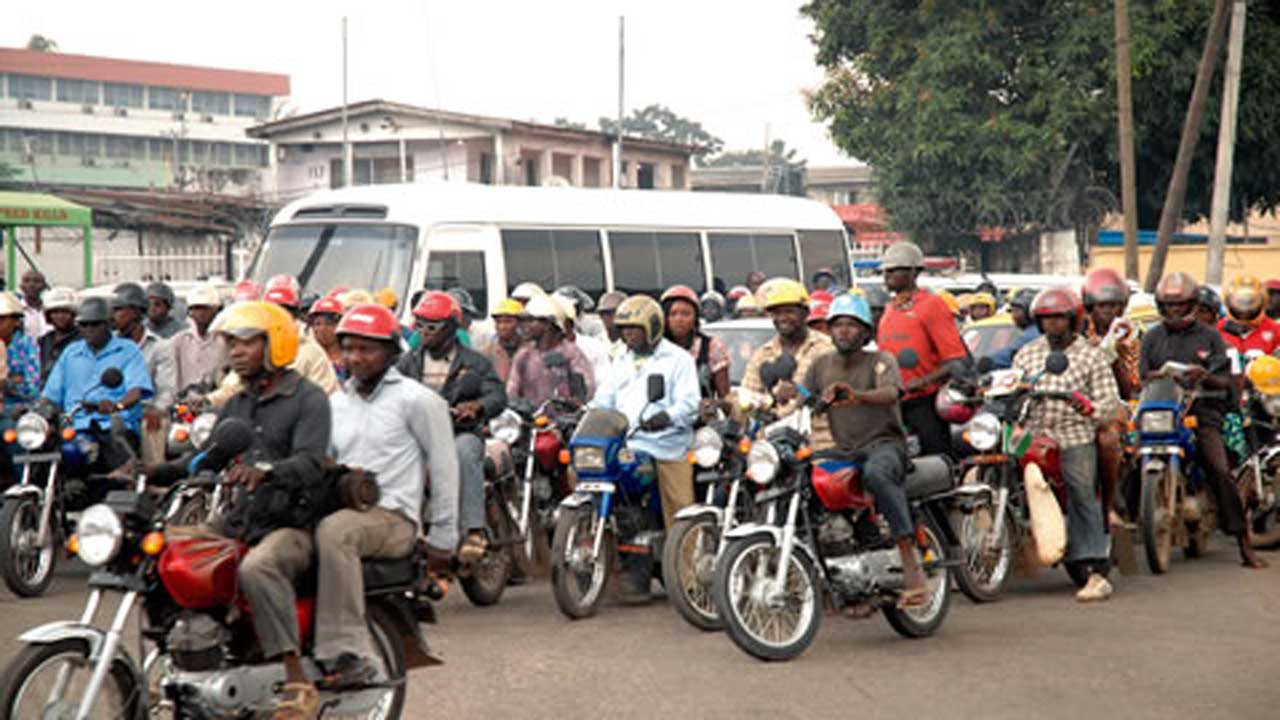
A proposal by the Federal Government to ban the operations of commercial motorcyclists, otherwise called okada riders, across the country is a good idea given Nigeria’s insecurity problem. Unfortunately, the Federal Government’s proposal is beyond its constitutional purview. In truth, the use of commercial motorcycles should be abolished in the urban centres and in the rural areas affected by terrorism and mass kidnapping. But in a federal polity, it is the states and local governments that should impose and enforce such a ban.
Certainly, the Federal Government cannot regulate the transport modes in states in a federal structure, which Nigeria operates, albeit shambolically. It should leave that decision to the state governors and LG chairmen, while it (the Federal Government) enforces the ban in the Federal Capital Territory, on federal interstate highways and in any state where emergency rule is in force. At best, it can persuade the states on the overriding necessity of such sweeping bans to combat insecurity. That would be welcome.
Without further delay, all the 36 states and the FCT should move energetically to enforce a ban on commercial motorcycle activities in the cities where they have increasingly become eyesores. In areas infested by bandits and other criminals, who use motorcycles to carry out their violent acts, the ban and enforcement should be total.
In Lagos, among the sundry criminal activities perpetrated by okada riders was the confession of a rider arrested in 2016 by the State Police Command that he made N10,000 every day transporting robbers during operations.
As governor of Lagos State (2007-15), Babatunde Fashola had pushed a traffic law that among other measures, banned okada operations on some of the state’s 9,100 roads. He said, “If you are concerned about security, you must support the present Lagos governor on okada ban. As the Centre of Excellence, motorcycles should not be our choice of transport.” The ban covered 475 bridges and roads. It ensured a safe environment in some LGAs, highways, and major roads in the state during his tenure.
Governors who are still foot-dragging on the issue should jettison politics and take a far-reaching decision in the interest of their people and overall development of the states they administer.
In 2005, authorities in Uzbekistan banned motorcycles and scooters to improve security in the state capital and largest city, Tashkent. Violators were heavily fined and a ban on bicycles was also mulled. This is the right way of thinking to insulate citizens from needless deaths and risks.
There should also be deadlines by state governments in areas where okada activities are to be banned. The effect will undoubtedly be biting at first, but the result surely will gladden hearts. Measures should then be rolled out to encourage private bus and taxi operators, while roads and highways should be rehabilitated.
The ban should be fully enforced. Enforcement should be an everyday affair backed by punishment for obstinate riders and their passengers. Government cannot make laws and go to sleep. Law enforcement agencies should be well funded, equipped and motivated to execute the task, free of corruption and extortion. The culture of neglecting to enforce laws encourages lawlessness, impunity and crime.
States should provide private sector-led efficient modern means of transportation. The claim by the Amalgamated Commercial Motorcycles Riders Association of Nigeria that a ban would hinder mobility and the source of livelihood of millions should be juxtaposed with the negative costs of widespread okada use. Apart from accidents leading to deaths and permanent disability, the killing, maiming, arson, looting and devastation that motorcycle-borne terrorists have wrought across the country outweigh temporary discomfort.
Three recent attacks in succession on the FCT — at the Kuje Prison, an ambush of Nigerian Army troops, and on a military checkpoint — were undertaken by hundreds of terrorists on motorcycles. The ‘bandits’ of the North-West, Islamist terrorists and kidnappers (often, they operate seamlessly in the three roles), favour motorcycles as means of transport.
Sentiments should have no place when a country’s very existence is under threat. Over 7,000 persons have been killed this year alone by criminals. Modern transportation systems are drivers of sustainable economies, engendering cleaner, fast and efficient regions, and cities with incredible socio-economic outcomes. That should be the urgent task of the state governors.
Okada activities should be banned outright in Lagos, Ibadan, Port Harcourt, Kano, Kaduna, FCT and other major cities. States should undertake repairs of all damaged roads where okada activities thrive because of the refusal of commercial bus drivers to ply such routes. LGs should repair inner roads. Of the country’s total road network of 195,000 kilometres, only 35,000 are federal, leaving the rest to the states and LGs.
Governors have a duty to generate robust and sustainable employment ideas. They should empower the people pragmatically and desist from promoting poverty-entrenching initiatives such as dubious “cash transfers” and giveaways in form of motorcycles, tricycles, and other absurd gifts. Governors play politics with everything in Nigeria rather than working to deliver outstanding developments.
Oyo State Governor, Seyi Makinde, said recently that the government had no plan to outlaw okada but would only regulate them. This is just politicking. Nigerians deserve better transport means and not an abject transport mode fused with huge risks and unruliness. The penchant of unscrupulous politicians for capitalising on mass poverty to encourage okada-riding entrenches endemic poverty and further kills their capacity to explore better alternatives.
Buying motorcycles for youths by politicians is grossly misplaced, cynical, and lazy. Instead, governors should formulate economic policies to boost agriculture, SMEs and attract investment.
Passengers should be re-orientated and fully educated on the dangers of using motorcycles for commercial transportation. They should stop patronising them for their own safety and the operators to engage in more dignifying jobs. There are too many ticketing ‘louts’ attached to the terrible activities, causing mayhem and confusion in their areas of operation.
Okada riders’ violence has resulted in loss of lives and property. The gross impunity and bedlam should be stopped.





